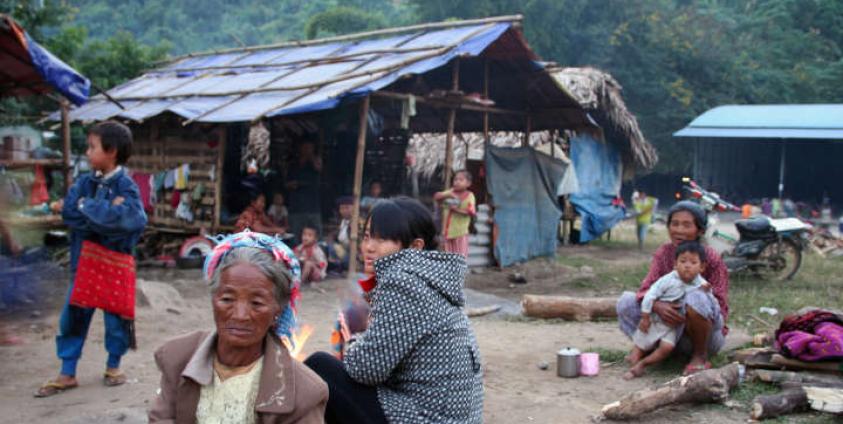Ten years ago today, the Burma Army broke its ceasefire agreement with the Kachin Independence Army (KIA) when it launched attacks on KIA bases on the Taping River east of Bhamo, Kachin State.
Burma Army shelling of villages forced thousands of civilians into temporary displaced people’s camps.
The number of displaced Kachin villagers driven from their villages by the Burma Army is now estimated by community-based organizations to be more than 100,000.
To add to the difficulties of caring for the displaced villagers, Kachin community-based organizations said they have had to deal with government policy and its military, blocking the delivery of humanitarian aid.
A statement released under the banner of the World Kachin Congress condemned Burma attacks on civilians and demanded the international community take action against the military coup leaders.
The World Kachin Congress statement said the “February 1 coup has only made things worse. Mass atrocities are taking place in both rural areas and now on the streets in urban centers like Yangon and Mandalay. The Burma Army has maintained that they intend to rule with ‘disciplined democracy.’ But with over 800 civilians killed, and thousands unlawfully detained, it’s clear that they are not sincere in returning the country back to democracy.”
The Kachin Congress claimed “junta security forces continue to deploy troops to destroy property, confiscate possessions and arrest rights defenders. The regime has never been sincere in their roadmaps for peace. Their recent actions are clear evidence of this.”
The Kachin Congress said the international community needed to do more than just issue statements condemning the military.
“The international community must do more to stand up to the illegitimate junta by taking concrete steps towards putting an end to decades of entrenched impunity.”
The Kachin Congress listed five points requesting “world leaders, United Nations representatives, and ASEAN delegates to:
1) “reject the State Administrative Council and recognize the National Unity Government of Myanmar as the body representing democratically elected members from the Committee Representing Pyidaungsu Hluttaw (CRPH);
2) adopt the resolution drafted by the UN General Assembly which calls for a global arms embargo;
3) enact targeted sanctions to limit the financial powers of the junta;
4) work with leaders of ethnic armed organizations who have helped provide shelter to fleeing activists and trained civilians to defend themselves when their lives are threatened by the junta and
5) “ensure that Min Aung Hlaing and the Burma Army are held to account for their crimes through a United Nations Security Council referral of the situation in Burma to the International Criminal Court.”








